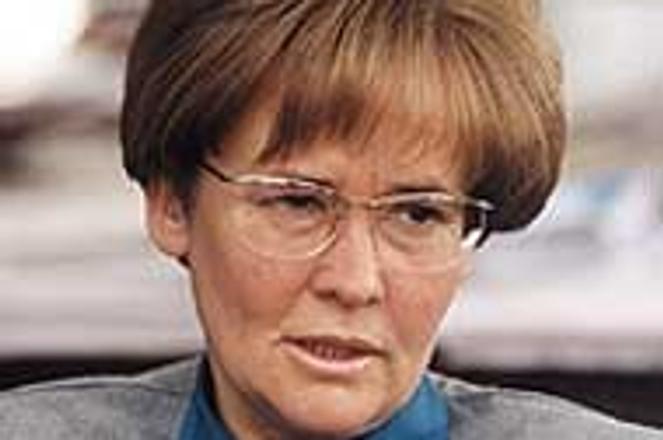Finance Minister Brigita Schmögnerová said that only economically weak and fragile countries were forced to agree to an EFSAL loan.photo: TASR
Banking and corporate sector chiefs are eagerly waiting to see the outcome of negotiations between the World Bank (WB) and the Slovak government over a $400 million loan the government wants to use for vital economic restructuring.
The Finance Ministry recently balked at the World Bank's insistence on making a stand-by agreement conditioned with an Enterprise and Financial Sector Adjustment Loan (EFSAL). If the government bowed to this demand, the International Monetary Fund (IMF) would monitor the macroeconomic stability of the country.
Finance Minister Brigita Schmögnerová dismissed the condition on the grounds that IMF involvement would lower the country's standing in the eyes of ratings agencies and investors. Schmögnerová said that Slovakia's economy was not bad enough to warrant the condition, saying that only economically weak and fragile countries were forced to agree to such a stipulation.
However, a new set of alternatives from the WB not involving the stand-by loan has revitalised negotiations. A government decision is expected within the next two weeks on whether the loan will be rejected entirely or if the Slovak side will back down on its stance and accept some degree of IMF help. The World Bank has been trying hard to get the finance minister to agree to a compromise on the loan.
"The question now is not whether or not the government should take the stand-by agreement," said Anton Marcinčin, a consultant for the World Bank. "There are now several options [for the loan] and the stand-by one is the toughest option - this will be the discussion for the next two weeks."
He explained that current discussions with the Finance Ministry had so far moved away from that option. Now on the table was what level of IMF involvement should exist in the loan provision.
"The question is what amount of involvement is good from the government's point of view, both economically and politically. At the very least, we believe that some level of IMF involvement is good," he said. Marcinčin added that the IMF could bring a degree of much-needed expertise.
"The World Bank does not have the appropriate experts and it would be good for Slovakia because the IMF does not have them either," Marcinčin said.
Deputy Premier for the Economy Ivan Mikloš said that accepting the stand-by condition of the loan would do no harm to Slovakia. Mikloš believed that the IMF's involvement in the credit line would give credibility to Slovakia in international eyes.
Schmögnerová, meanwhile, pointed to Slovenia and Hungary as examples of countries in similar positions who had taken WB loans without making a stand-by agreement. She added that the government's economic performance last year was proof that Slovakia didn't need any help from the IMF.
In 1999 a series of important economic measures including hikes in energy and housing allowed the government to meet its 16 billion Slovak crown ($372 million) budget deficit target, while reversing the massive borrowing policies of the previous government led by Vladimír Mečiar.
Schmögnerová was backed by National Bank governor, Marián Jusko. The bank chief said that while co-operation with both the IMF and the World Bank was good, the stand-by condition was unnecessary. Jusko also agreed that such a condition would dissuade ratings agencies from raising their ratings for the country harming both potential investment and European Union integration.
Currently Standard & Poor's, Moody's and Fitch IBCA have sovereign ratings for Slovakia of BB+, BA1 and BB+. The agencies gave no indication that these ratings would change before the end of the year. They were also reluctant to say whether or not the acceptance of the IMF stand-by would influence any of their decisions regarding Slovakia.
"We have many criteria for producing a rating.... A rating which ultimately aims to show the financial strength of a country. Many countries take World Bank loans, and may have different ratings. Russia takes World Bank loans and that has a very different rating from Slovakia," explained George Dallas of Standard & Poor's.
Analysts were dubious of any link between a potential drop in ratings and the acceptance of the stand-by condition but remained optimistic that the government could still gain the credit line without the extra condition.
"If there's no need for the stand-by facility, why bother taking it," said Ivan Chodák of CAIB Securities in Bratislava. "The government would do better to have the loan without the stand-by agreement and I don't think it would harm the ratings [from the agencies] anyway."
The World Bank has now proposed six alternatives to the government to take the loan. Only one of those involved the stand-by agreement, with an IMF Staff Monitoring Programme and a WB guarantee of a foreign issue of state securities for funding company and bank restructuring among the new options.


